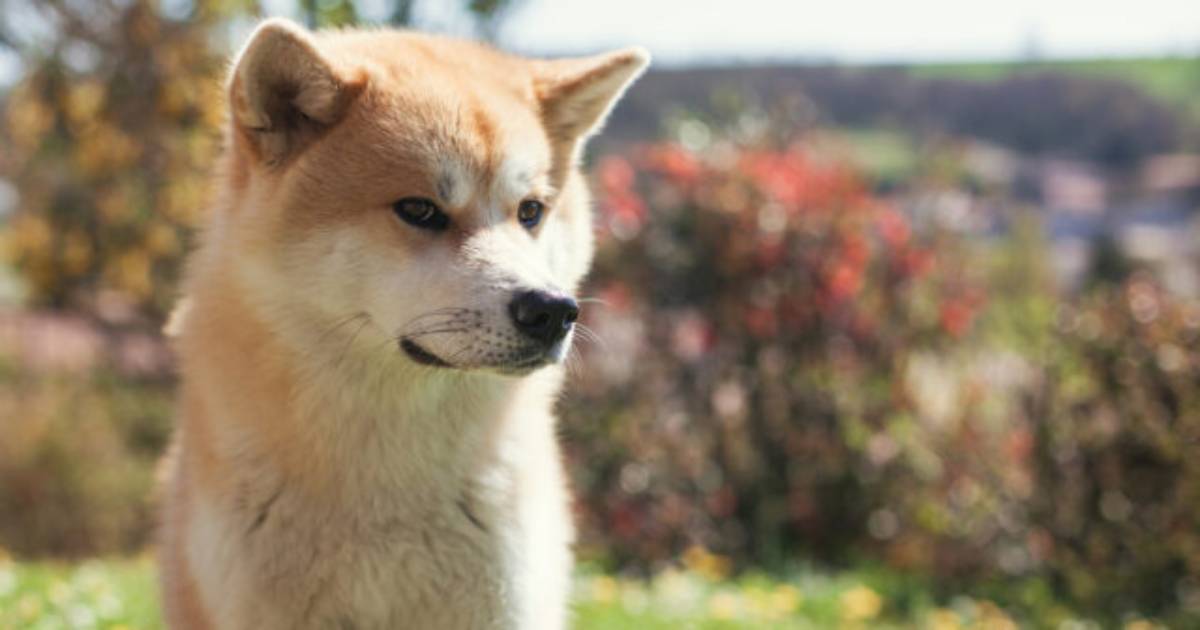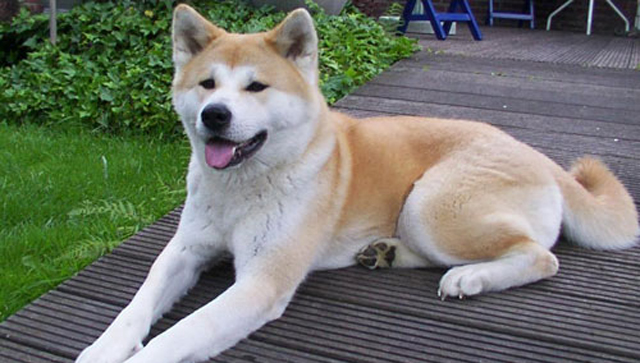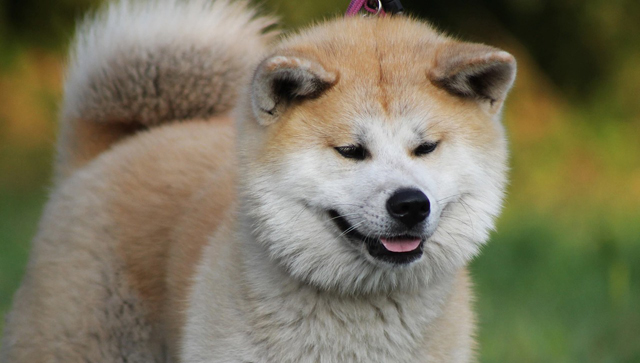iHeartDogs is reader-supported. When you buy via links on our site, we may earn an affiliate commission at no extra cost to you.

Known for their loyal, protective nature, small pointed ears, and gorgeous fur, the Akita is a favorite breed for dog parents all over the world. Akitas are strong, intelligent protectors and fun-loving, energetic companions at the same time.
As great as this breed is, Akitas tend to be prone to certain medical conditions. While several of these health issues can be expensive to treat, you may be able to cover the high costs if you invest in pet insurance for your dog early.
It’s easy to feel overwhelmed when it comes to choosing the right pet insurance plan for your beloved Akita. This guide will help you select a plan that covers everything you want it to, so you can be there for your dog when they need you most.
Compare The Top 9 Pet Insurance Plans for Your Akita Using our Free No-Obligation Quote Tool below
The simplest way to compare pet insurance prices is to use our tool below. This comparison tool will show you quotes from the top 9 pet insurance carriers, including Trupanion, Pets Best, Lemonade, ManyPets, FIGO, HealthyPaws, Prudent Pet, Spot, and Embrace pet insurance.
How Much Does Pet Insurance for an Akita Cost?
Below are some sample pet insurance plans for a 1-year-old male Akita using the zip code 75001 (Texas) as an example.
- Pets Best – $49.81 per month
- Embrace – $57.07 per month
- Healthy Paws – $42.20 per month
- ManyPets – $45.54 per month
Ultimately, your plan’s premium will depend on several factors, including your dog’s age, size, and breed, as well as where you live. You also want to know what type of coverage your plan has and if it will help with Akita-specific health problems. Let’s get more into those medical conditions and how much you can expect to pay to treat them.
Common Health Problems Associated With Akitas
Progressive Retinal Atrophy And Cataracts in Akitas
Progressive retinal atrophy (PRA) is a degenerative eye disorder that leads to eventual blindness from the loss of photoreceptors at the back of the eye. This can affect your dog’s depth perception and make them hesitant to walk at night.
Your Akita may also develop cataracts, a grayish-white film that forms over the lens of their eye. Surgery can remove cataracts, but it’s expensive, and it is possible for a dog to live comfortably with some treatment and adjustments.
Hip Dysplasia in Akitas
Hip Dysplasia is one of the most common problems in larger breed dogs, including Akitas. The hip joint is a ball and socket joint, and hip dysplasia causes malformation of the two components. That makes it difficult for your dog to walk, and the chronic laxity can cause abnormal wear, which leads to osteoarthritis.
RELATED: What You Need To Know About Hip Dysplasia
Autoimmune Hypothyroidism in Akitas
The thyroid gland regulates the body’s metabolism. Sometimes, the thyroid can become under-active, which is called “hypothyroidism.” It occurs when the immune system recognizes the dog’s thyroid as foreign and attacks it, slowing your dog’s metabolism.
Hypothyroidism could result in weight gain, lethargy, or changes in hair and skin condition in your Akita.
Gastric Torsion (“bloat”) in Akitas
Gastric Torson (aka “bloat”) occurs when your dog’s stomach fills too rapidly with gas, food, or fluid. Bloat is a sudden, life-threatening condition where the stomach can twist, blocking the organ’s entrance and exit. It can even obstruct blood flow, which is a medical emergency.
Bloat more commonly affects large breed dogs like Akitas. Early diagnosis and treatment are essential when it comes to gastric torsion. Preventative measures, like regular exercise, proper diet, and not eating or drinking too quickly help as well.
If you notice any of these warning signs, you should take your Akita to the vet right away:
- Swollen belly
- Rapid heartbeat
- Difficulty breathing
- Collapse
Uveodermatologic Syndrome in Akitas
Uveodermatologic Syndrome is caused by the immune system destroying melanocytes (pigment-making cells) concentrated in the skin and eyes. Dogs affected by the condition will likely suffer eye problems (including retinal separation) and skin or fur pigment changes. While the skin and hair symptoms are basically just cosmetic issues, this condition can lead to blindness in your Akita.
Typical Costs Of Treating Health Issues In Akitas and How Pet Insurance Can Help
If left untreated, many of the health conditions listed above can result in long-term consequences and even require surgery, which ultimately makes them more expensive to manage. Selecting a pet insurance plan that’s suited for your Akita’s particular needs might save you tons of money on medical costs.
Here are just some sample veterinary expenses for Akitas:
- Progressive Retinal Atrophy and Cataracts Costs: Sadly, there’s currently no effective treatment for PRA, but there are home adjustments and wearable halos to make your blind dog’s life more comfortable. Cataract surgery can cost between $2,700 and $4,000 on average.
- Hip Dysplasia Costs: The cost of surgery for hip dysplasia can range from $4,000 to $6,000 per hip. Surgical options include Triple Pelvic Osteotomy, Femoral Head Osteotomy, and Juvenile Pubic Symphysiodesis, all costing thousands of dollars. Without surgery, your dog will suffer discomfort and eventually severe pain.
- Autoimmune Hypothyroidism Costs: Hypothyroidism isn’t curable, but it is treatable. You’ll need to administer thyroid replacement hormone for the remainder of your dog’s life, meaning monthly or bi-monthly purchases. Weight gain, however, can lead to other medical problems, which could cost a lot.
- Gastric Torsion (“bloat”) Costs: If your dog’s stomach has twisted, it will probably need emergency surgery to untwist it. The average cost of treating a bloat case with surgery runs between $2,000 and $5,000. If there are complications, the cost could be even higher. Pet insurance with emergency coverage can literally be life-saving in this case.
- Uveodermatologic Syndrome Costs: Diagnosing this condition could be pricey if a dermatologist and ophthalmologist are both involved (typically costing $500 to $1,500.) Doctors will likely prescribe corticosteroids, and if your dog’s eyes and skin don’t respond, more expensive meds may be necessary.
Knowing the signs and symptoms of these conditions common in Akitas can help you catch them early, saving your dog and your money. When in doubt, take your pup to the vet to have them diagnosed.
What Is Pet Health Insurance And Why Do I Need It For My Akita?
Pet health insurance works very similarly to human health insurance. Your policy quote will range in monthly price, depending on your dog’s breed, age, and where you live. Typically, you’ll spend around $15-$103 per month as a pet parent.
Pet insurance is mainly about peace of mind, knowing you won’t be totally overwhelmed in case of an emergency. Enrolling even when your dog is young and healthy will ensure you have plenty of coverage when they need expensive medical care later. If you choose a plan more suited to your dog’s particular breed, you’ll be more prepared when something happens later on in their life.

Some plans cover accidents and illnesses, while others only cover accidents. Certain plans do cover breed-specific illnesses, and others do not. It all depends on what type of coverage you choose. With our free pet insurance comparison tool, you can get quotes from multiple insurance companies with no obligation to commit.
Whatever plan you choose, you’ll feel better knowing you can take care of your dog when they need you most. Plus, you won’t have to suddenly shell out thousands of dollars. Learn more about how pet insurance works here.
Pet Insurance Carrier Comparisons
- 9 Best Pet Insurance Plans for Dogs
- Best Cheap Pet Insurance
- Trupanion Vs. Pets Best Pet Insurance
- Trupanion Vs. Lemonade Pet Insurance
- HealthyPaws Vs. Embrace Pet Insurance
- HealthyPaws Vs. Trupanion Pet Insurance
- Embrace Vs. Trupanion Pet Insurance
- Embrace Vs. Lemonade Pet Insurance
- Trupanion Vs. FIGO Pet Insurance
- Prudent Pet Vs. Trupanion Pet Insurance
- Embrace Vs. ManyPets Pet Insurance
- Embrace Vs. FIGO Pet Insurance
- Prudent Pet Vs. Embrace Pet Insurance
- HealthyPaws Vs. ManyPets Pet Insurance
- HealthyPaws Vs. FIGO Pet Insurance
- Prudent Pet Vs. HealthyPaws Pet Insurance
- HealthyPaws Vs. Lemonade Pet Insurance
- Pets Best Vs. ManyPets Pet Insurance
- Pets Best Vs. FIGO Pet Insurance
- Prudent Pet Vs. ManyPets Pet Insurance
- Prudent Pet Vs. Pets Best Pet Insurance
- Embrace Vs. Pets Best Insurance
- HealthyPaws Vs. Pets Best Pet Insurance
- ManyPets Vs. Lemonade Pet Insurance
- Lemonade Vs. FIGO Pet Insurance
- Trupanion Vs. ManyPets Pet Insurance
- ManyPets Vs. FIGO Pet Insurance
- Lemonade Vs. Pets Best Pet Insurance
- Prudent Pet Vs. Lemonade Pet Insurance
- Prudent Pet Vs. FIGO Pet Insurance
Breed Pet Insurance
- Pet insurance for Akitas
- Pet insurance for Alaskan Malamutes
- Pet insurance for American English Coonhounds
- Pet insurance for American Staffordshire Terriers
- Pet insurance for Australian Cattle Dogs
- Pet insurance for Australian Shepherds
- Pet insurance for Basset Hounds
- Pet insurance for Beagles
- Pet insurance for Bernese Mountain Dog
- Pet insurance for Bichon Frises
- Pet insurance for Bloodhounds
- Pet insurance for Border Collies
- Pet insurance for Boston Terriers
- Pet insurance for Boxers
- Pet insurance for Bulldogs
- Pet insurance for Bullmastiffs
- Pet insurance for Bull Terriers
- Pet insurance for Cane Corsos
- Pet insurance for Cavaliers
- Pet insurance for Chesapeake Bay Retrievers
- Pet insurance for Chihuahuas
- Pet insurance for Chinese Crested Dogs
- Pet insurance for Chow Chows
- Pet insurance for Cocker Spaniels
- Pet insurance for Collies
- Pet insurance for Corgis
- Pet insurance for Dachshunds
- Pet insurance for Dobermans
- Pet insurance for Dogue De Bordeaux
- Pet insurance for English Springer Spaniels
- Pet insurance for French Bulldogs
- Pet insurance for German Shepherds
- Pet insurance for German Shorthaired Pointers
- Pet insurance for Goldendoodles
- Pet insurance for Golden Retrievers
- Pet insurance for Greyhounds
- Pet insurance for Great Danes
- Pet insurance for Great Pyrenees
- Pet insurance for Havanese
- Pet insurance for Huskies
- Pet insurance for Jack Russells
- Pet insurance for Labrador Retrievers
- Pet insurance for Labradoodles
- Pet insurance for Lhasa Apsos
- Pet insurance for Maltese
- Pet insurance for Mastiffs
- Pet insurance for Miniature Pinschers
- Pet insurance for Mixed Breeds (small)
- Pet insurance for Mixed Breeds (medium)
- Pet insurance for Mutts
- Pet insurance for Newfoundlands
- Pet insurance for Old English Sheepdogs
- Pet insurance for Papillons
- Pet insurance for Pekingese
- Pet insurance for Pit Bulls
- Pet insurance for Pomeranians
- Pet insurance for Poodles
- Pet insurance for Pugs
- Pet insurance for Rhodesian Ridgebacks
- Pet insurance for Rottweilers
- Pet insurance for Saint Bernards
- Pet insurance for Samoyeds
- Pet insurance for Schnauzers
- Pet insurance for Shar-Peis
- Pet insurance for Shelties
- Pet insurance for Shiba Inus
- Pet insurance for Shih Tzu
- Pet insurance for Staffordshire Bull Terrier
- Pet insurance for Vizslas
- Pet insurance for Weimaraners
- Pet insurance for Westies
- Pet insurance for Whippets
- Pet insurance for Yorkies
Pet Insurance by City
- Pet Insurance in San Diego
- Chicago Pet Insurance
- New York City Pet Insurance
- Pet Insurance in Seattle
- Pet Insurance in Los Angeles
- Pet Insurance in Austin
- Pet Insurance in San Antonio
- Pet Insurance in Miami
- Pet Insurance in Philadelphia
- Pet Insurance in Sacramento
- Pet Insurance in Orlando
- Pet Insurance in San Francisco
- Pet Insurance in Houston
- Pet Insurance in Dallas
- Pet Insurance in Tampa
- Pet Insurance in Pittsburgh
Pet Insurance by State
- Pet Insurance in California
- Pet Insurance in Texas
- Pet Insurance in Florida
- Pet Insurance in Pennsylvania
- Pet Insurance in Washington State
- Best Pet Insurance in Michigan
- State of Delaware Pet Insurance
- Pet Insurance in NC
- Pet Insurance in NJ
- Pet Insurance in Colorado
- Pet Insurance in Ohio
- Pet Insurance in Oregon
- Pet Insurance in Indiana
- Pet Insurance in Oklahoma
- Pet Insurance in Utah
- Pet Insurance in New York
- Pet Insurance in Massachusetts
- Pet Insurance in Arizona
- Pet Insurance in Minnesota
- Pet Insurance in Connecticut
- Pet Insurance in Wisconsin
- Pet Insurance in Hawaii
- Pet Insurance in Iowa
- Pet Insurance in New Hampshire
- Pet Insurance in Alabama
- Pet Insurance in Maine
- Pet Insurance in Maryland
- Pet Insurance in Rhode Island
- Pet Insurance in Arkansas
- Pet Insurance in Illinois
- Pet Insurance in Nebraska
- Pet Insurance in Alaska
- Pet Insurance in Louisiana
- Pet Insurance in South Carolina
- Pet Insurance in Vermont
- Pet Insurance in Georgia

 Toledo, United States.
Toledo, United States.